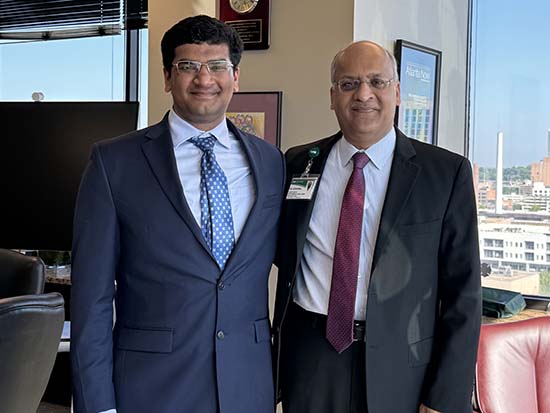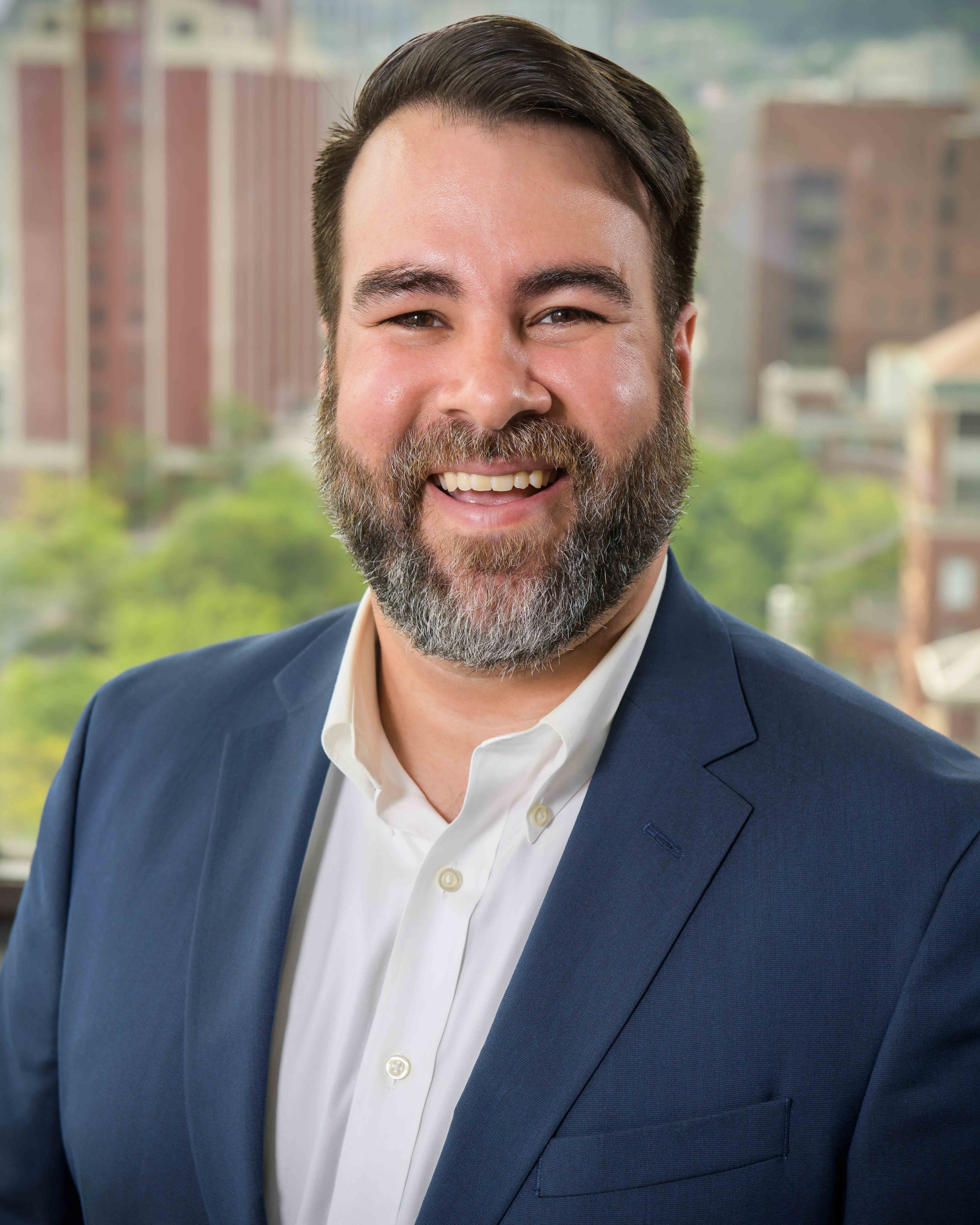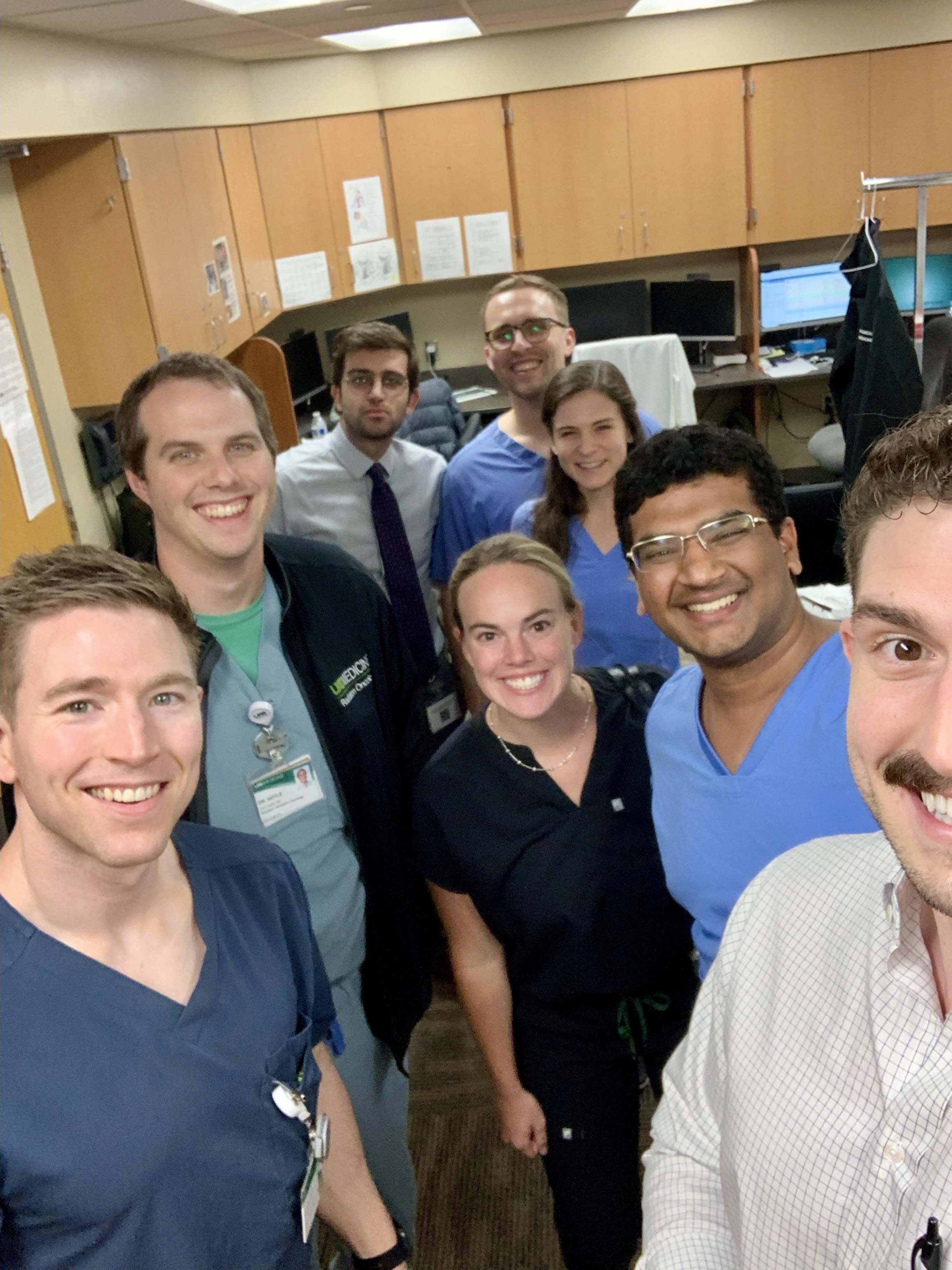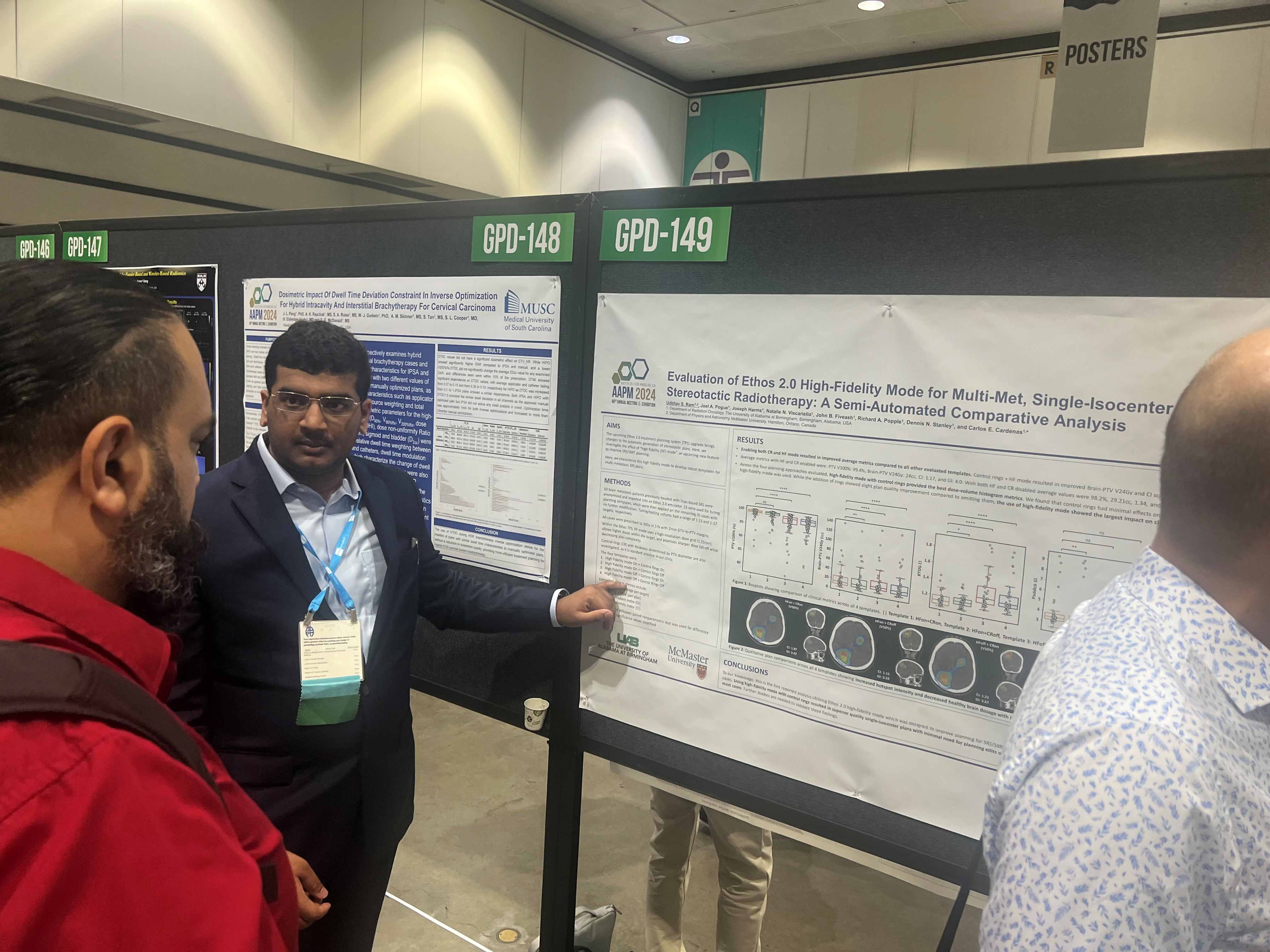 Udbhav Ram and Anupam Agarwal, M.D.Udbhav Ram, an international scholar from McMaster University, recently joined Carlos E. Cardenas, Ph.D., in his lab to study and research.
Udbhav Ram and Anupam Agarwal, M.D.Udbhav Ram, an international scholar from McMaster University, recently joined Carlos E. Cardenas, Ph.D., in his lab to study and research.
As part of our international collaborative partnership with McMaster, Udbhav has worked with Cardenas since 2021—first through a remote collaboration, then on Heersink School of Medicine’s Birmingham campus from January to August 2024.
Together, their projects investigate how artificial intelligence tools can advance radiation treatment and planning.
Developing AI solutions to revolutionize clinical care
Cardenas, who is an assistant professor in the Department of Radiation Oncology and the director of Automated Treatment Planning, leads a computational research laboratory in Radiation Oncology.
 Carlos E. Cardenas, Ph.D.“Our focus is on developing artificial intelligence-based solutions to improve clinical care,” said Cardenas. “In addition to software development, my research is heavily centered on the clinical translation of these tools into practice.” Cardenas also serves as director of AI Research and Development in the Marnix E. Heersink Institute for Biomedical Innovation.
Carlos E. Cardenas, Ph.D.“Our focus is on developing artificial intelligence-based solutions to improve clinical care,” said Cardenas. “In addition to software development, my research is heavily centered on the clinical translation of these tools into practice.” Cardenas also serves as director of AI Research and Development in the Marnix E. Heersink Institute for Biomedical Innovation.
Udbhav, or Udi, has worked with Cardenas in his lab to explore both open-source and vendor-provided artificial intelligence solutions for radiotherapy treatment planning.
“Our research is mainly focused on the development of quality assurance software for our clinically focused AI tools,” said Udi. “So far, my specific work has been comparing various open source, automated AI segmentation solutions and validating new vendor software releases for our adaptive radiotherapy program.”
Cardenas said that Udi has made a positive and tangible impact on their research together. "His involvement has certainly advanced our projects, and we are excited to have him return next year to continue building on this momentum."
Collaborating to shape the future of care
 When asked about the collaboration in his research experience at UAB, Udi said, “As an undergraduate student, I’ve been extremely fortunate to have had the chance to work with faculty members across the department. The ethos of the department, and the university as a whole has really enabled me to be efficient and productive during my time here.”
When asked about the collaboration in his research experience at UAB, Udi said, “As an undergraduate student, I’ve been extremely fortunate to have had the chance to work with faculty members across the department. The ethos of the department, and the university as a whole has really enabled me to be efficient and productive during my time here.”
Udi said that in addition to immediate lab members, he also had the chance to collaborate and interact with faculty members, residents, and clinicians during his time on campus.
Cardenas agrees with the productivity that collaboration offers. “The research experience with Udi has been highly collaborative, not only between myself and Udi but across the broader team,” he said. “We’ve worked closely together on a number of projects, and his ability to engage with both senior members of the lab and with other medical physicists, residents, and physicians in the department has been impressive. This level of collaboration has allowed for significant progress in our research endeavors and highlights the importance of teamwork in achieving clinically-relevant outcomes.”
Undergraduate ambassadorship paves the way for opportunity
Udi said his time on UAB’s campus has helped him take his career as a researcher to the next level, especially as an undergraduate student.
“The lessons learned from faculty across the department have shaped the way I think and will continue to positively impact my career outlook. Working on projects that use cutting-edge technology, such as AI, and seeing their potential impact on patients has been tremendous. It has allowed me to contribute not just to 'bench' research but also to clinically-relevant projects that could directly improve patient care.”
 During his time at UAB, Udi achieved many great accomplishments. He attended multiple conferences across North America to showcase the research he and Cardenas have worked on. He submitted two manuscripts to peer-reviewed journals—both a direct result of the rigorous and supportive mentorship of Cardenas and other faculty members, he said.
During his time at UAB, Udi achieved many great accomplishments. He attended multiple conferences across North America to showcase the research he and Cardenas have worked on. He submitted two manuscripts to peer-reviewed journals—both a direct result of the rigorous and supportive mentorship of Cardenas and other faculty members, he said.
“I’ve also been extremely fortunate to engage with the university at a larger level, through my undergraduate ambassadorship between McMaster and UAB. I’ve been able to facilitate dialogue at a high level about what the experience should entail for undergraduates like myself who want to take part in an exchange between McMaster and UAB. I am fortunate to find myself in the unique position of having my undergraduate education in progress at McMaster while spending extended periods of time here at UAB as a researcher, so it’s important for me to leverage this experience to promote the cross-seeding efforts initiated and supported by Dean Agarwal, Provost Tighe, Dr. Heersink and others.”
Additionally, Udi said UAB’s campus was very welcoming to him as an undergraduate student. “There’s no shortage of cool clubs or events to take part in, and the students and faculty have been very welcoming. UAB’s facilities are supportive and reflective of it’s commitment to the future of research and excellence.”